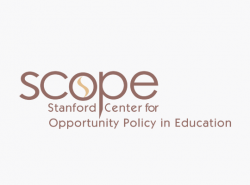Before or After the Bell? School Context and Neighborhood Effects on Student Achievement

Paul A. Jargowsky and Mohamed El Komi examine the relative impact of school and neighborhood contexts on 5th through 8th grade math and reading scores.

Paul A. Jargowsky and Mohamed El Komi examine the relative impact of school and neighborhood contexts on 5th through 8th grade math and reading scores.

In this paper, Prudence Carter et al. argue that certain educational practices in the United States and South Africa converge to thwart integrationist goals.
SCOPE is working with the John O'Connell High School staff in the San Francisco Unified School District to provide professional development to support the school's learning academies.
SCOPE is working with district, school, industry, non-profit, and higher educational leaders in California to help build and advance the field of Linked Learning.
SCOPE is working with Knox County Schools' Fulton High School in Tennessee to develop four small learning community academies through a federal grant. The high school is strengthening project-based learning within academy teams.
Study Visits are inquiry-based mini courses to exemplary high schools conducted by the Stanford Center for Opportunity Policy in Education (SCOPE) and a partner school.
SCOPE provides technical assistance and professional development for Albuquerque Public Schools as they implement their federal Small Schools Grant.
LEADS applied cutting-edge knowledge from scholars and practitioners in education, business, and design to the complex challenges confronting urban school systems. It served six districts around the country.
This project investigates educational policies in Botswana and South Africa by measuring student achievement in 112 schools on either side of the countries' border.

Prudence Carter assesses the literature on cultural explanations for ethno-racial differences in K–12 schooling and academic performance.